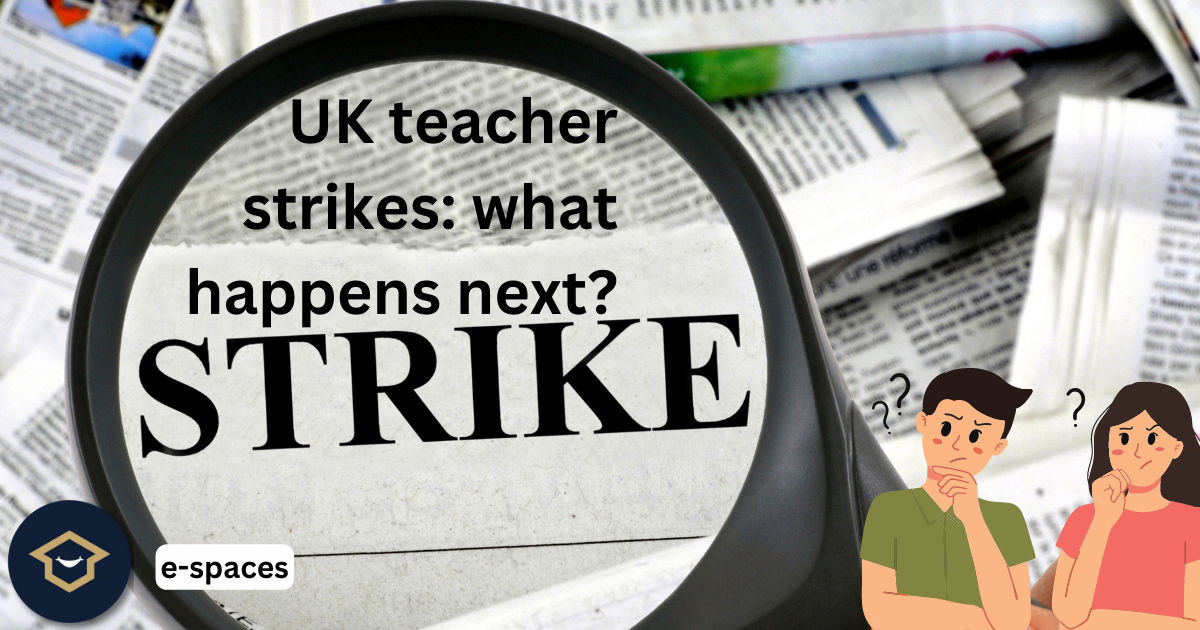Technology can offer part of the solution to teacher strikes, a problem that has reached a tipping point
The Education sector is in a strikes crisis. Like most public sectors in the UK, squeezed budgets and outdated systems have contributed significantly to its workers being overworked and underpaid for the stress that they are put under on a daily basis.
As a result, teachers began a series of strikes last week, aimed at putting pressure on the government to give them a real pay rise that lines up with inflation.
While yet more disruption to children’s learning following the pandemic is a less-than-ideal scenario, Mary Bousted, of the National Education Union (NEU), claimed just before the first day of strikes that the government still showed an unwillingness to talk.
She said: “I don’t see that the government at the moment is serious about negotiating, and we would not have got to this point if they had started to negotiate with us last October when we first decided to ballot our members. Teachers are at the end of their tether. They are undervalued, they feel underpaid, they are completely overworked.”

The government has so far resisted pressure in the form of strikes from across the public sector. Train drivers have yet to make significant progress despite striking at various points over the last few months, while NHS workers have recently started doing the same without success. So is there an alternative to this disruption? How can a resolution be found?
How did it get here?
Teacher pay starts at £28,000, but a recent study from the Institute of Fiscal Studies calculated that teachers had, in effect, had their pay cut by up to £6600 since the Conservatives returned to power and embarked on a period of austerity back in 2010.
But school budgets are also constantly being chipped away at, contributing to rising class sizes, teaching assistants disappearing and more teachers than ever being hired despite not being qualified. Maths is one particular subject that is being hit hard in this area – 1 in 8 pupils is being taught the subject by unqualified teachers.
The candle has been burnt at both ends for too long. Teachers are being asked to do more with less every year, and now, with the COVID pandemic having exacerbated an already desperate situation, the NEU voted overwhelmingly to take a stand and force the government to take their struggles seriously.

What can the NEU realistically expect to achieve through strikes?
Teachers don’t usually get into the profession for the money. They do it because they are passionate about educating young people and setting them on the path to future success. More often than not, they will have been inspired by their own teachers.
So while rising costs of living obviously a factor in any decision, what truly concerns teachers is the lack of investment in them as individuals. It’s not uncommon for teachers to work 12 hours every day during the week, and often their work spills over into the weekend. This is because the education sector has failed to adapt and provide cutting-edge solutions to time-consuming problems such as marking homework and other general admin tasks.
But what if technology was part of the solution?
E-spaces is aiming to help play a part in tackling this issue. Its easy-to-use app gives teachers the ability to test their students’ engagement through an interactive in-lesson assessment tool, which not only gives automatic feedback on how well they have engaged with the topic but also stores the data to help identify trends in performance. It eliminates the need for regular homework and therefore gives teachers a significant amount of their time back.
BETA testing begins very soon. Find out more about how your school can be involved here.










